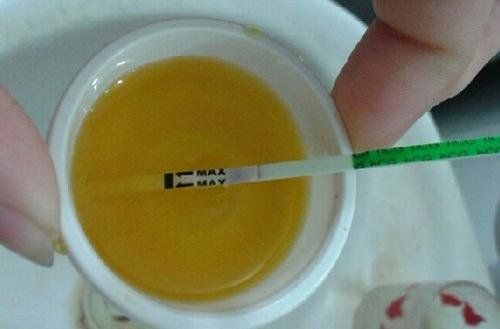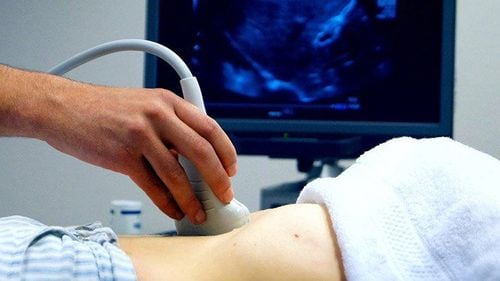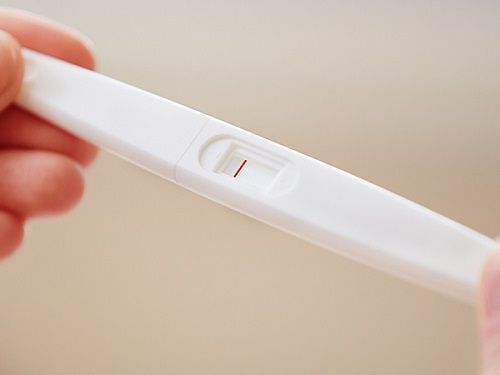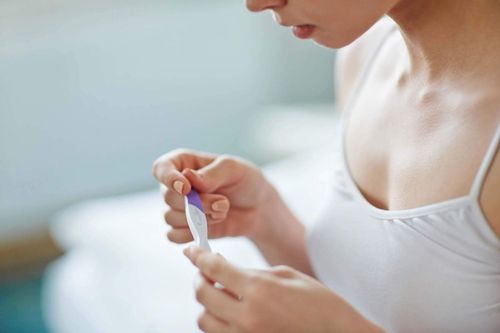This is an automatically translated article.
When to take a pregnancy test to get the most accurate results is one of the things that is quite confusing for many women. Currently, women can choose from different methods of pregnancy testing, such as a urine test or a blood test, which help determine the level of hCG in the body.
1. When should you take a pregnancy test?
For most women, the ideal time to take a pregnancy test is a few days after your period returns to normal.
Currently, there are two main types of pregnancy test, including urine test and blood test. Both of these tests measure the human chorionic gonadotropin (hCG) hormone in your body. This is the pregnancy hormone, which helps determine if you are pregnant or not. However, these pregnancy tests can vary in when and how they are used.
Most home pregnancy tests are urine tests. They help detect the amount of hCG in a woman's urine to a certain extent. If you use this type of test too early in your pregnancy, the amount of hCG in your urine may not be high enough to give a positive result. Most forms of urine pregnancy tests will give you an accurate answer if you take the test a few days after your period returns to normal.
The test can also come back negative for a number of reasons, including:
You may not be pregnant Take the pregnancy test too early than the standard time You may be ovulating late The test there isn't enough time to detect an increase in hCG levels in your body You are pregnant but have complications that affect hormone levels in your body. If you get a negative result, try again in a few days when your period still hasn't arrived.
Another commonly used type of pregnancy test is a blood test that measures the level of the hormone hCG in your blood. In general, blood tests are often more sensitive than urine tests, so they can measure extremely small amounts of hormones in the body. In addition, this type of test can also detect pregnancy earlier than a urine test, usually about 6-8 days after ovulation. However, they will cost more to perform and must be ordered by a doctor before taking a blood sample.
Trắc nghiệm: Bạn có hiểu đúng về dấu hiệu mang thai sớm?
Các dấu hiệu mang thai sớm không phải chỉ mỗi trễ kinh mà còn có rất nhiều dấu hiệu khác như xuất huyết âm đạo, ngực căng tức,… Điểm xem bạn biết được bao nhiêu dấu hiệu mang thai sớm thông qua bài trắc nghiệm này nhé!
2. How can I take a pregnancy test?
Even the most effective birth control methods have the potential for error. This can also happen if you take over-the-counter (OTC) pregnancy tests.
For this type of urine test you can follow various instructions such as:
Take urine in a cup dip the test strip in it Take urine in a cup and use an eyedropper to transfer a small amount of urine in a special container Place the pregnancy test kit directly into the area of your urine stream According to the Cleveland Clinic, most pregnancy tests can be 99% effective if taken after a period. Your normal period is late. You can completely do a home pregnancy test yourself. After a certain amount of time, the test will show results in one of the following ways:
Change color One line One symbol, such as plus or minus The words "pregnant" or "not pregnant" "

3. Some signs that you should take a pregnancy test
If you are pregnant, it will take enough time for your body to develop a testable hCG level. This process usually takes 7-12 days after the egg is successfully fertilized. However, you may get inaccurate results if the test is done too early in the cycle.
Here are some signs that you should take a pregnancy test.
3.1.You missed your period
One of the first and most reliable signs of pregnancy is a missed period.
If you do not track your period closely, it will be very difficult to accurately determine if you are late or not. Many women have a 28-day menstrual cycle. You should consider taking a pregnancy test if your period is more than a month late since your last period.
However, your period can sometimes be delayed or absent due to a number of other factors, such as stress, improper diet, exercise or health problems.
In addition, you should also pay attention to the amount of your period if you suspect that you are pregnant. Usually, you'll experience light bleeding or spotting during the first few weeks as the egg sinks deeper into the lining of the uterus during implantation. This could be pregnancy blood. Therefore, you should be aware of the color, texture and amount of blood at that time.

3.2.You have cramps
During early pregnancy, you may feel discomfort or cramping, and think your period is coming, but it doesn't happen as expected.
At this point, you should take a pregnancy test to check your hCG hormone levels.
3.3. Chest pain
During pregnancy, the body will produce a lot of estrogen and progesterone. These hormones begin to make changes in your body to support the growth of your unborn baby.
The sign of pregnancy is that the breasts become tender and appear larger due to increased blood flow in the body. You may also have pain in your nipples and veins under the skin that look darker.
However, many women also experience breast discomfort in the days leading up to their period, so this is not always a sign of pregnancy.

3.4. Some different sensations in the body
Besides symptoms like cramping and breast pain, early signs of pregnancy can cause the following problems:
Nausea Not wanting to eat Exhaustion Frequent urination As the weeks go by, these symptoms can may be more pronounced than before, even if hCG levels in the body drop towards the end of the first trimester.
3.5. Unsuccessful birth control methods
In fact, birth control pills, condoms and other birth control devices do not provide 100% protection against pregnancy. In other words, you always have a little chance of getting pregnant no matter how careful you are.
When using birth control pills incorrectly, or with poor quality condoms, you can still get pregnant unexpectedly.

4. Meaning of pregnancy test results
When you take a pregnancy test, you may get the following results:
Positive result: indicates that you are pregnant. Negative result: you are not pregnant. If you still think you are pregnant despite a negative test, it's best to wait a few days and then try again.
5. When did you conceive?
Your body will start to produce hCG hormone after successful conception.
If you get a positive test result on the first day of your period, you are likely to have conceived about 2 weeks.
In addition, you can also use the pregnancy due date calculator to determine when to give birth. Besides, if you take more sensitive tests, it will tell you you are pregnant as early as about 8 days after conception.
Furthermore, some pregnancy tests can estimate the time of conception based on the concentration of HCG in your urine.

6. Is home pregnancy test accurate?
Home pregnancy tests (HPTs) usually give fairly accurate results. They work by detecting the presence of the human chorionic gonadotropin (hCG) hormone in the urine, which is produced during pregnancy. However, different brands of tests may recognize different amounts of hormones. On the other hand, hCG levels are often very low in early pregnancy, causing some HPTs to give false-negative results. If you get a negative result and still don't get your period within a few days, you should get tested again.
Early pregnancy identification is very important, so that you can adjust your nutrition and rest accordingly, good for the development of the fetus, especially in the first 3 months of pregnancy, it is very easy to miscarry, pregnant women with a history Miscarriage, premature birth need to be very careful during this period. The first 3 months is also the time to perform the most accurate prenatal screening tests for babies, early to detect birth defects such as Down's disease. Therefore, choosing the location of maternity care and pregnancy ultrasound is very important. The effectiveness of the ultrasound method for diagnosing fetal malformations depends a lot on the qualifications of doctors and modern equipment.
Vinmec International General Hospital is a high-quality medical facility that is highly appreciated by customers for its quality of examination and treatment as well as professional services. Vinmec has the most modern equipment system, with the most advanced ultrasound machines in the world and a team of experienced obstetricians in prenatal diagnosis and intervention to help monitor and detect early fetal malformations.
In addition, to protect the health of mother and baby comprehensively, Vinmec offers a variety of package Maternity services. With this package, pregnant women will have regular antenatal check-ups with specialist doctors, especially thyroid screening tests for mothers in the first 3 months, Rubella tests. Perform prenatal and postnatal screening tests for the baby. During pregnancy, if a pregnant woman encounters any abnormal health problems, she will be consulted and treated by a specialist doctor. After each visit, the doctors will analyze the ultrasound and test results and advise on health care, nutrition, and rest suitable for each pregnant woman, helping the mother and fetus to be healthy. well developed, uniform indicators.
If you have a need to use maternity services at Vinmec, please register directly at the website to be served.
Please dial HOTLINE for more information or register for an appointment HERE. Download MyVinmec app to make appointments faster and to manage your bookings easily.
Reference sources: babycenter.com, healthline.com












